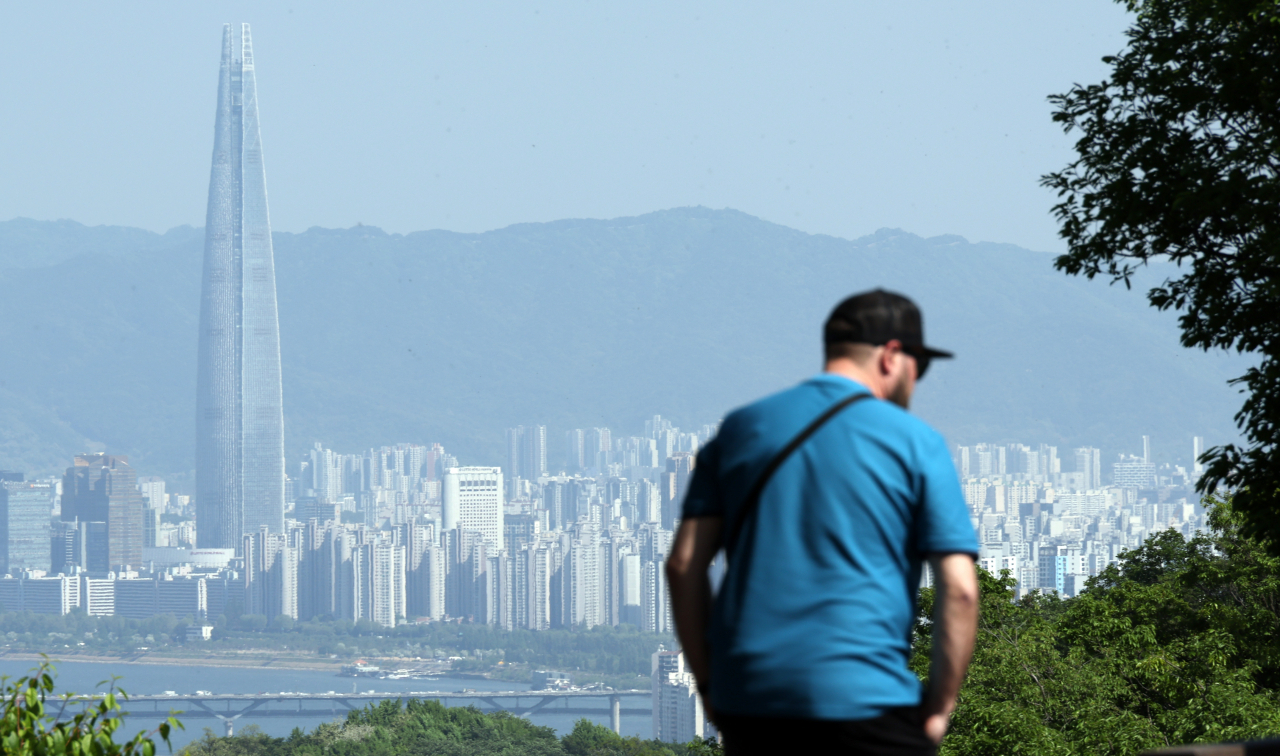 |
A person stands in front of a view of Seoul's Han River skyline, including the Lotte World Tower. (Yonhap) |
The presidential office will establish a pangovernmental task force dedicated to protecting the country's strategic industries and encourage concerted efforts among government bodies, following the Organization for Economic Cooperation and Development's projection of South Korea's economic growth this year, Thursday.
"(South Korea) won't be able to sustain victory in the battlefield of countries pouring efforts on key industries, without removing barriers between ministries and local governments when it comes to handling affairs related to national strategic industries," said Sung Tae-yoon, director of national policy for President Yoon Suk Yeol.
The presidential office will also set its sights on decelerating consumer price inflation with a new presidential body to keep the growth of the consumer price index below 3 percent, in line with the 2.9 percent growth of the index announced Thursday.
The OECD on Thursday raised South Korea's economic growth outlook for 2024 by 0.4 percentage point to 2.6 percent.
The latest revision follows the OECD's February announcement, which had revised the projection by 0.1 percentage point from November to 2.2 percent.
The OECD's new estimate is higher than the International Monetary Fund's 2.3 percent, and the government's own 2.2 percent projections.
Seoul said the newest figure is the highest growth outlook among countries with a gross national income per capita of over $20,000.
South Korea's GNI per capita is $33,745 as of 2023. GNI per capita is calculated by dividing a country's final total income in a year by its population.
The new outlook reflects that exports of goods like semiconductors are on the path to recovery while domestic consumption, the construction industry and investment have propelled a domestic economic rebound, according to Sung.
According to Seoul, South Korea's exports from January to April came to $220 billion, up 9.7 percent from the previous year, while the April figure alone jumped 13.8 percent year-on-year to $56.2 billion.







![[Today’s K-pop] Blackpink’s Jennie, Lisa invited to Coachella as solo acts](http://res.heraldm.com/phpwas/restmb_idxmake.php?idx=644&simg=/content/image/2024/11/21/20241121050099_0.jpg)